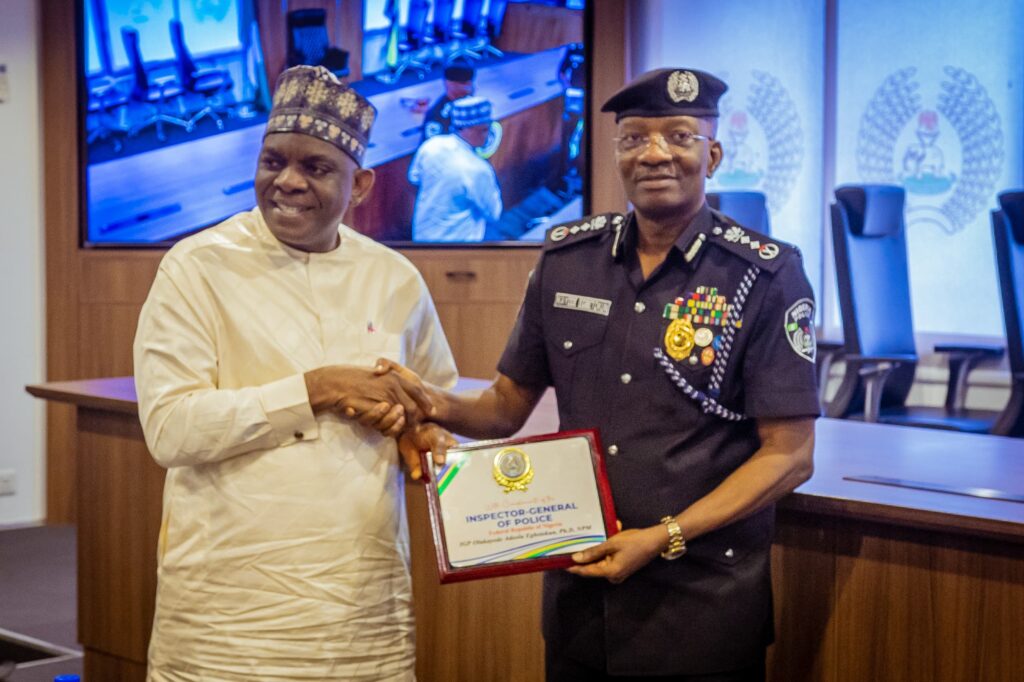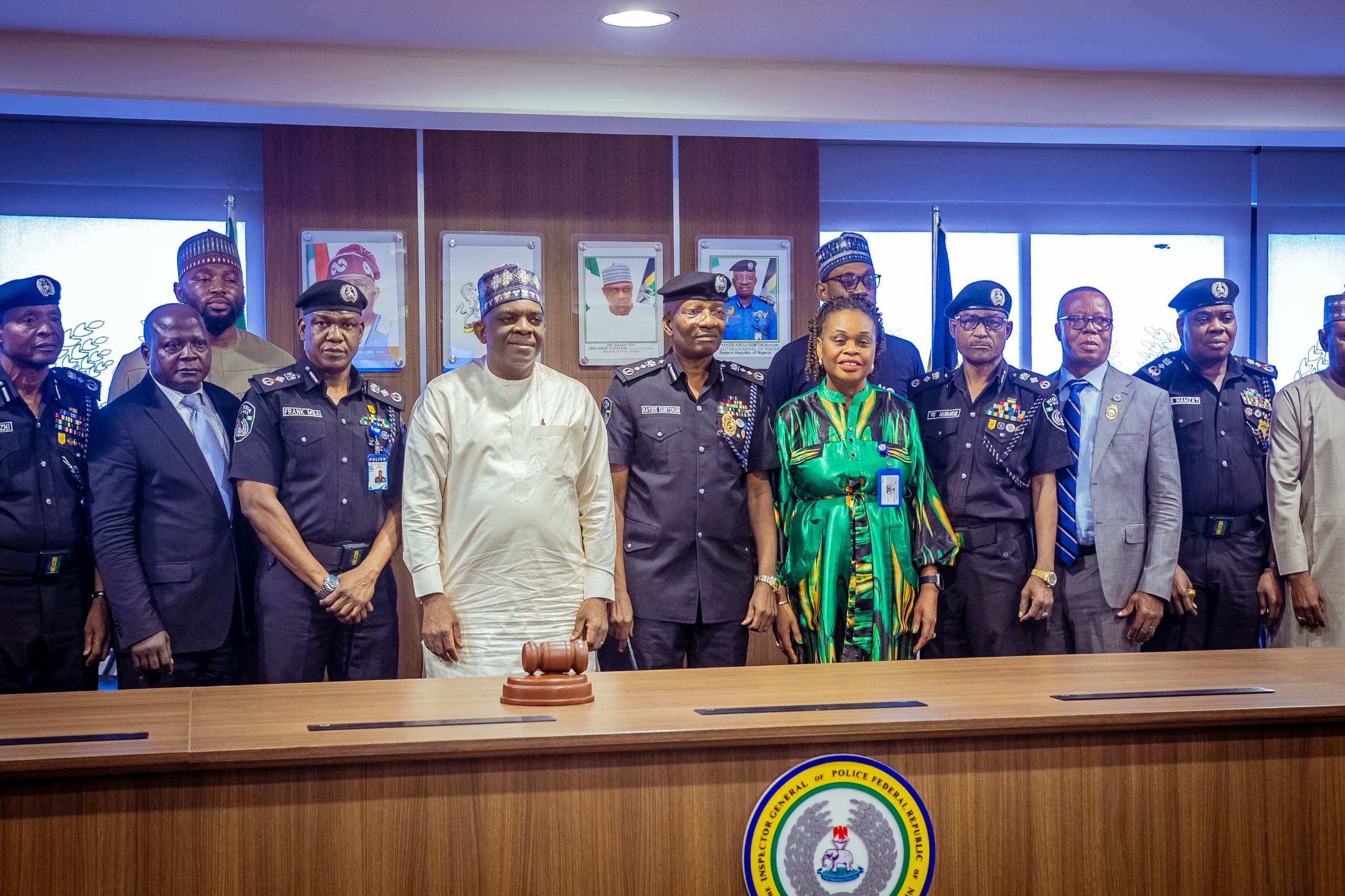The Inspector-General of Police, Kayode Egbetokun, on Tuesday pledged the Nigeria Police Force’s continued support to securing Nigeria’s marine and blue economy spaces.
Mr Egbetokun made the commitment while hosting the Executive Secretary of the Nigerian Shippers’ Council (NSC), Akutah Pius Ukeyima, and his team at the Force Headquarters in Abuja.

The engagement, which held at the IGP focused on deepening inter-agency cooperation to protect Nigeria’s waterways and port corridors vital ecosystems vulnerable to criminal activities and environmental degradation.
In his remarks, Mr Ukeyima commended the police for their long-standing support in ensuring transparency and efficiency along Nigeria’s port corridors, which are crucial to both trade and ecological stability.
He specifically noted the implementation of the Nigerian Port Process Manual, which he said has been instrumental in tackling corruption, reducing bottlenecks, and enhancing compliance in the maritime sector.
The Shippers’ Council chief called for strengthened surveillance and monitoring systems especially by joint police-taskforce teams to enforce environmental compliance and reduce infractions such as illegal dumping, oil theft, and unregulated shipping activities that often threaten marine biodiversity.

Responding, Mr Egbetokun reaffirmed the Police Force’s commitment to supporting Nigeria’s transition to a sustainable blue economy.
He noted that protecting marine environments is not only vital for economic growth but also critical to climate resilience, coastal community livelihoods, and regional stability.
“The Police are ready to work more closely with the Nigerian Shippers’ Council and other stakeholders to secure our waters, enforce regulatory standards, and deter crimes that undermine our environmental and economic future,” the IGP said.
He pledged increased deployment of personnel to coastal zones and port infrastructure to bolster surveillance, tackle maritime insecurity, and support the Council’s environmental enforcement mandate.
Nigeria’s blue economy, which encompasses fisheries, shipping, offshore oil and gas, and tourism, is estimated to be worth over $296 billion annually.
However, maritime insecurity, oil spills, and poor environmental governance have limited the sector’s potential.
Analysts believe stronger collaboration between security agencies and regulatory bodies like the NSC is vital to achieving the federal government’s vision for a clean, secure, and economically viable marine environment.
The IGP’s renewed pledge also comes amid calls from civil society and environmental advocates for increased enforcement of Nigeria’s environmental laws in coastal and marine zones, particularly in the face of rising illegal activities and pollution levels in the Gulf of Guinea.
By Dare Akogun





